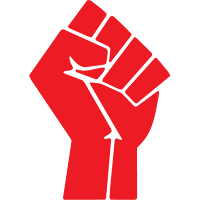The mission of radical political economy is to accentuate the perseverance of critical social scientific enquiry. As such, the aim is to make palpable how the insights of social justice research widely make apparent how the global socioeconomic system does not automatically generate efficient situations whereby unique organizations of production, exchange, and distribution guarantee the attainment of maximum social welfare.
The idea that humans are simple instrumentally rationalists, who supposedly oscillate like a homogeneous globule of Hobbesian brutes, is conclusively a fiction. Radical political economy exposes hidden complex social fractures that limit the capability of humans to safeguard social assets, social claims, and social ties requisite for sustaining an institutional nucleus for human survival. Hence, the goal is to embrace scholarship that evinces the impingement upon the accruement and management of resources vital for catholic cogitation, and realization, of conscious desires for humans to reach their full potential.
In this sense, the purpose is to establish the appropriate consciousness needed to untie the Gordian knot of social complexity, in order to surpass rudimentary assumptions concerning the nature of human social interaction. Accordingly, the concern is with elucidating the intrinsic causal social relationships—the Hegelian ‘notion’ of truth submerged and contained within the confines of appeared ‘being’—that furnishes meaning and understandability, so as to strengthen a philosophy of praxis that strives to build the social conditions for a reconstruction and reconstitution of the social world, such that higher stages of human development are sought and achieved.
In other words, what is requisite active engagement in the construction and strengthening of a broadly shared paradigmatic and methodological orientation that emphasizes the trenchant questioning of manifest social phenomena, in order to expose the underlying structural dynamics that engender mass deprivation and dispossession. This is a tireless exercise in solving the inherent problems related to relationship between abstraction and social reality, in order to elucidate the philosophical, metaphysical, epistemological, ephemeral, and ontological qualities that condition the human lived experience and, regrettably, foster the unnecessary barriers for humans to be masters of their own social organization.
The human brain confronts matters in the most efficient manner possible; so much so that it often becomes counterintuitive to undergo analysis that extends beyond the simplest explanation, even if that explanation is suspect. It is in this inherent method where dogma is born. This process of edification, however, has the power to overcome innate tendencies towards such reductionism. Since radical political economy presents an authentic humanism, which posits as fundamental that human beings of all social locations subjected to domination must fight for their emancipation, then this predisposition towards apathy—intensified through systems of coercive, disconnected, and hierarchical social institutions—can be broken down, spawning a community that is both cooperative and collaborative, whereby all human dignity, creativity, and survival are held in the highest regard.
Another post on radical political economy is here

No comments:
Post a Comment